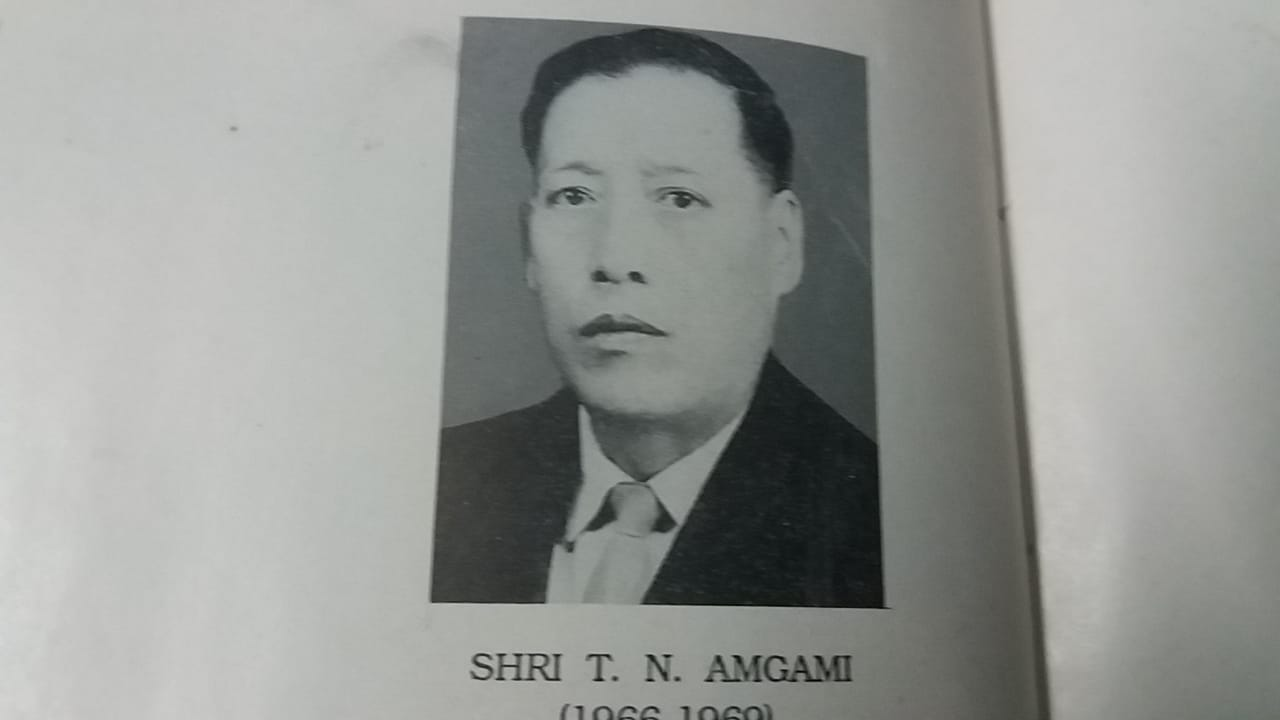New Delhi
"The recent appointment of a new Governor as the common Governor for Assam and Nagaland ....is a complete negation of the constitutional and legal rights of the state".
To your surprise, this is not the Neiphiu Rio-Jagdish Mukhi era of 2022.
This statement was made in 1968 on the floor of the state assembly by the then Chief Minister T N Angami. On March 25, 1968, he had moved an official resolution in the assembly seeking immediate appointment of a separate or exclusive Governor for Nagaland.
The 'legislative history' of Nagaland assembly has been historic and piloted by men of quality and boldness.
There were a few resolutions which left a long term impact in state's politics and the functioning of the government apparatus.
Veteran R C Chiten Jamir was one such individual. In the 1990s - when we happened to know him -he was overshadowed by overwhelming personality of S C Jamir and had reconciled to end up his career as a minister only.
The veteran lawmaker (legislator) was otherwise a flamboyant leader of his time.
On Sept 18, 1967, he moved a rather historic resolution titled 'Continuance
of English language as the state language for Nagaland for indefinite period".
Hold on ! The resolution also had a statement - something that could be unthinkable in today's
era - that the Assembly "further recommend that English be included as one of the languages
in the Eighth Schedule of the Constitution of India".
That Nagas do not have a unified Naga language is not known to many bureaucrats and
so-called intellectuals in Lutyen's Delhi.
In 1968, as the second Chief Minister after P Shilu Ao, T N Angami moved another resolution.
Nagaland Page
"The Assembly recommends that the state government should immediately assume full responsibility for maintaining law and order effectively to protect the innocent villagers from being
terrorised by the hardcore of underground section". (March 28, 1968)
On the same day, T N Angami moved yet another one condemning the Naga militants
contacting China.
"This Assembly feels strongly that the contacts with China by a section of the underground Nagas with evil designs to bring communism to Nagaland and to turn it into another Vietnam is a suicidal policy directed against the Naga people and the church".
The resolution in fact used a few more stronger phrases.
On Sept 19, 1965, Late Shilu Ao moved a resolution recording the state assembly's "full appreciation of the remarkable courage and heroic performance of our security forces against Pakistani aggressors".
After the successful war in 1971 that led to creation of Bangladesh, the then Chief Minister Hokishe Sema, a known protagonist of nationalism, had moved a resolution applauding Indira Gandhi's "bold, imaginative and astute leadership with matured political wisdom".
Notably, among the Private Member's Resolution, veteran leader from Wokha district, T A Ngullie on March 3, 1965 moved a paper seeking to convey to the Centre that "Hindi should not be imposed on non-Hindi speaking areas".
Some of these resolutions also reflect the state of governance and perhaps grievances of elected members.
K V Keditsu on March 17, 1967 moved a Private Member's Resolution on "withdrawal of Government vehicles from non-entitled persons". So, nepotism is not a typical new phenomenon.
In 1970, hardcore regionalist Vamuzo sounded rather a parochial legislator and said - "This House resolves that the services of Non Nagas now employed in Nagaland government on temporary services should not be regularised from the day this resolution is adopted".
On Sept 23, 1971, T A Ngullie had moved a Private Member's Resolution on Nagaland Political problem and said among other things - "The state government of Nagaland be moved to consider the release of Naga prisoners held/detained in connection with the underground Naga political activity".
History truly has an image of a circle. Men and women begin and begin again with the same ideas, beliefs and approaches -- to come back to the same history.
At the same time, there is another mystery. Communities with the same cultural origins at times do not necessarily evolve in a uniform manner.
ends






No comments:
Post a Comment